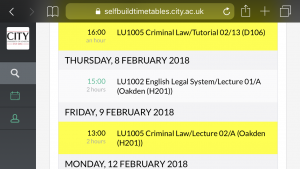Being an international student in London is an amazing opportunity to brush up on your English language and to experience British culture. Don’t miss the opportunity to live in London when you are studying, as it is probably the best time in your life to experience the city.
Finding private accommodation can be a little complicated for international students who choose to live outside of halls. Here is the catch-22: you need to prove you have the funding to pay for your accommodation but you can only work up to 20 hours per week with your student visa (read more on finding work while studying with a student visa).
Here are some tips to get around this:
#1 House hunt out of term-time
To pass referencing checks, find a place during vacation months when you can work full-time and show the agency or landlord you are working full-time.
#2 Find a guarantor in full-time employment
If you need a guarantor because you do not make enough and you do not have any family based in the UK for support, there are companies that you can pay to be your guarantor for the length of your housing contract. But it may be a cheaper option to find a friend who is willing to be your guarantor who is in full-time employment.
#3 Have the funds to pay upfront
Some landlords or agencies may ask for advance rent payment for the minimum stay of the contract – this generally means paying six months to one-year rent. Technically every year international students are required to already have the funds in their account to pay for their year in the UK and must be able to show this when asked at the airport customs. This means that you should already have the money available for advanced rent.
#4 Share a house with friends
Find an empty home that is being rented out as a whole property then find working professionals to buddy up with. When it comes to referencing, the agency or landlord will average the income across the people in full-time employment – depending on how much they are earning in comparison to the rent of the house – which would mean that you would not need a guarantor or need to be in full-time employment.







